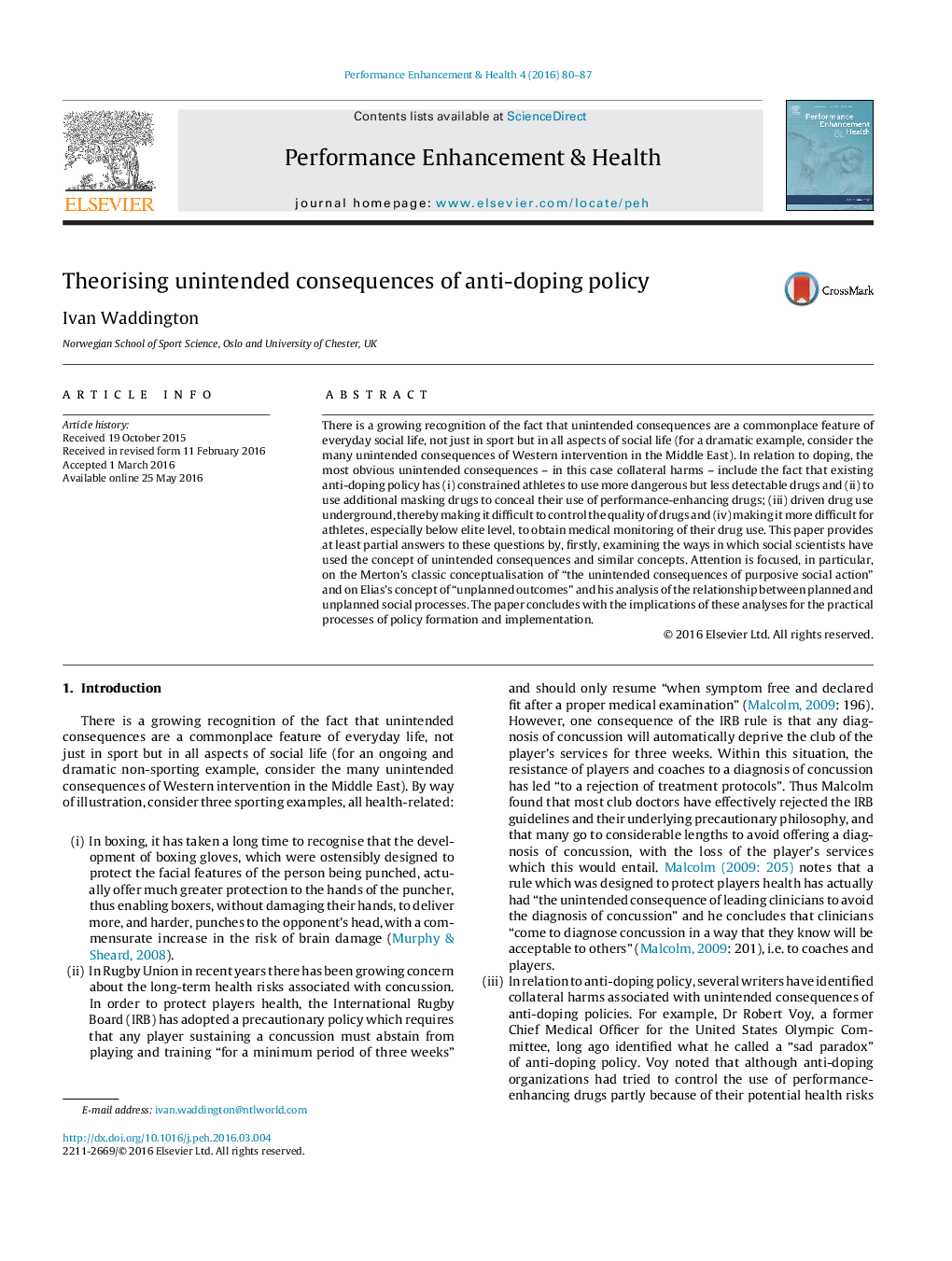| Article ID | Journal | Published Year | Pages | File Type |
|---|---|---|---|---|
| 889539 | Performance Enhancement & Health | 2016 | 8 Pages |
There is a growing recognition of the fact that unintended consequences are a commonplace feature of everyday social life, not just in sport but in all aspects of social life (for a dramatic example, consider the many unintended consequences of Western intervention in the Middle East). In relation to doping, the most obvious unintended consequences – in this case collateral harms – include the fact that existing anti-doping policy has (i) constrained athletes to use more dangerous but less detectable drugs and (ii) to use additional masking drugs to conceal their use of performance-enhancing drugs; (iii) driven drug use underground, thereby making it difficult to control the quality of drugs and (iv) making it more difficult for athletes, especially below elite level, to obtain medical monitoring of their drug use. This paper provides at least partial answers to these questions by, firstly, examining the ways in which social scientists have used the concept of unintended consequences and similar concepts. Attention is focused, in particular, on the Merton’s classic conceptualisation of “the unintended consequences of purposive social action” and on Elias's concept of “unplanned outcomes” and his analysis of the relationship between planned and unplanned social processes. The paper concludes with the implications of these analyses for the practical processes of policy formation and implementation.
